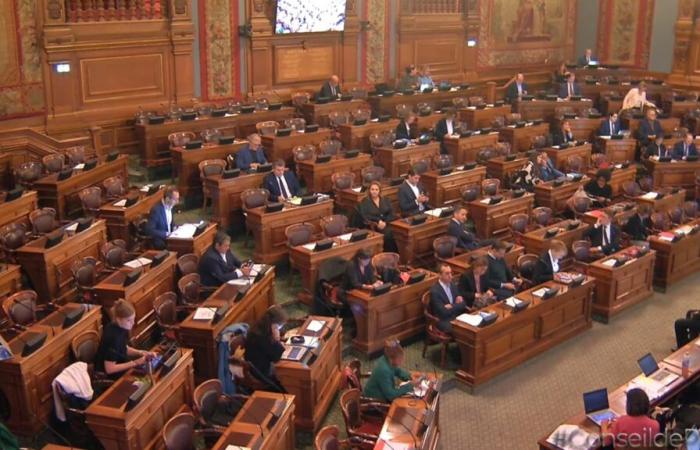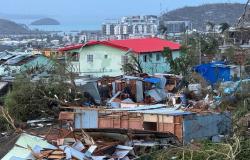The Paris Council finally managed to adopt its budget this Tuesday, amounting to 11.3 billion euros in expenditure. A budget focused on the environment, health and the middle classes. Between an unstable government and a high debt, the opposition was on a roll.
The Paris Council adopted, this Tuesday, December 17, the city’s 2025 budget, in a context of uncertainty over the finance bill and controversy over the capital’s debt, which crystallizes the opposition’s criticism of the mandate of Anne Hidalgo.
This “stable” budget, the last in full exercise of the mandate of the socialist mayor, in charge of Paris since 2014, provides for 11.3 billion euros in spending, including 1.7 billion in investment.
Debt amounts to 9.3 billion euros at the end of 2025, close to 10 billion euros in 2026, which will more than double in 10 years the amount of the community’s debt, both city and department.
“Climate emergency and support for the middle classes”
Anne Hidalgo defended a budget allowing “act with ambition in the face of the climate emergency” and “support the middle classes and the most vulnerable” notably through the production of social housing.
A quarter of the budget, 2.7 billion euros, is allocated to “health and solidarity” (social assistance for children, elderly people, early childhood, etc.), argued Paul Simondon, deputy at the mayor in charge of finances.
Its execution nevertheless calls for “caution” in a period of “great uncertainty”, according to the mayor, in the absence of a finance bill for 2025 after the censure of the government of Michel Barnier, to whom François Bayrou has just succeeded.
The municipal executive recalled that the former Prime Minister’s initial finance bill was to “take” 5 billion euros from local authorities, which according to his calculations would have cost around 320 euros per Parisian family.
A revived opposition
The presentation of the budget has revived the recurring controversy over the city’s debt, the increase of which is linked to “bad management” in the eyes of the opposition, and hampers its investment capacities.
“You are choosing to mortgage the future of Parisians,” denounced Delphine Bürkli (Modem and Independents group), regretting in particular the “delays” incurred by the bicycle plan or the tree plan. “In 2025, debt charges will reach a record amount of 225 million euros, or half of the sum estimated necessary to adapt the city to climate change,” added Maud Gatel, president of the same group.
“The financial room for maneuver is far too low” risks “compromising” the implementation of the 2024-2030 climate plan, tackled LR Geoffroy Boulard, of Union Capitale. The first opposition group is demanding a reduction in the property tax, the rate of which increased by 52% in 2023, by 500 million euros.
“You have not made any savings, contrary to your promises made in 2022 of a plan of 250 million savings,” criticized Rachida Dati, co-president of the Changer Paris (LR) group.
The resigning Minister of Culture and candidate for the 2026 municipal elections criticized her rival for “leaving a legacy” of an “unsustainable budgetary trajectory” which “prepares Parisians for a new tax increase”.
“One of the most moderate property taxes”
The second opposition group presented a “counter-budget” allowing, according to it, to make 300 million savings, in particular by stopping pre-emptions for social housing and by reducing the “lifestyle” of the Hôtel de City (53,000 agents).
“Let those who tell us that we are bad managers sweep in front of their doors,” retorted Ms. Hidalgo, recalling that France’s public debt amounted to “3,000 billion euros”.
For Pierre Madec, economist at the OFCE, it would be “reductive” to judge the outgoing mayor’s record “by the sole yardstick of the debt subscribed but in light of what it was used to finance, in the energy transition , social housing, the quality of life of residents,” he told AFP.
In the 2010s, Paris was “strangled by the boom in equalization levies between communities”, which played a major role in the rise in debt, adds Christian Escallier of the Michel Klopfer firm, specializing in local finances.
“His main mistake was not to raise taxes sooner,” this expert told AFP, according to whom “Parisian taxpayers continue to pay one of the most moderate property taxes of large cities in France.”






